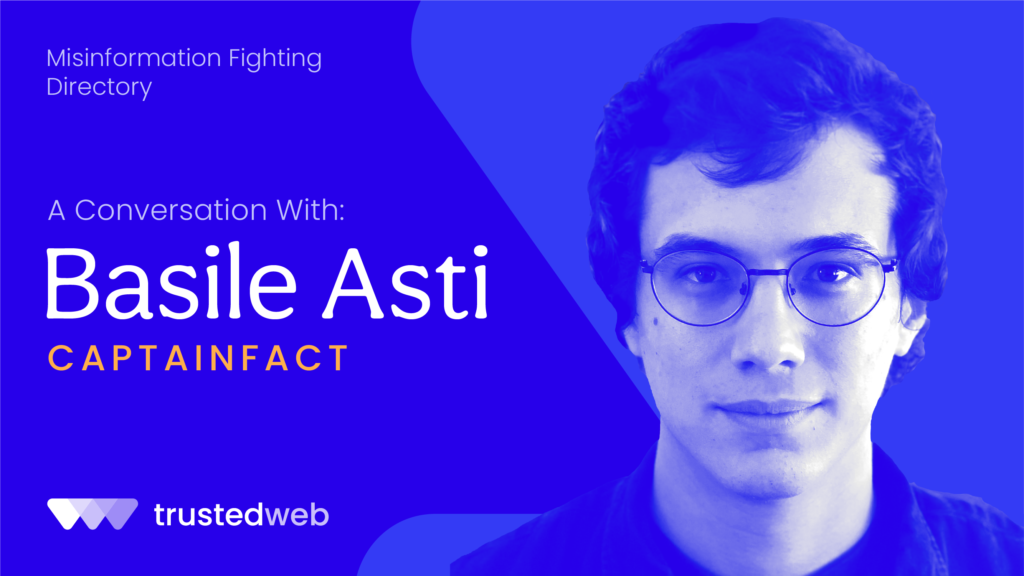Misinformation Fighting Directory — CaptainFact: A Conversation with Basile Asti
This article is part of our new Misinformation Fighting Directory where we interview organizations and projects that have built solutions or launched initiatives to help fight fake news and misinformation online.
The following is an interview we recently had with Basile Asti, Board member & Ambassador, CaptainFact.

Tell us about the team behind your project:
CaptainFact was created in 2016 by Benjamin Piouffle, a French developer who had come to the conclusion that we urgently needed some citizen, collaborative platform to verify/fact-check public statements if we were to hope for a more evidence-based public debate. The project started in beta and slowly scaled up over the past years as other benevolent contributors joined forces with Benjamin. In 2019, we finally established our ad-hoc collective as a non-profit organization (law 1901 as called in France) and dully elected our first board, that currently includes 6 individuals – all volunteers. As of today, around 30 members are part of the organisation. We work together remotely and receive help from various returning contributors on various tasks such as software development, UX, communications, graphic design.
What’s the mission behind your organization?
We believe our mission is quite straightforward: developing and promoting open-source collaborative fact-checking tools so citizens can evaluate and contextualize public statements in order to bring back evidence-based arguments within the public debate. We are convinced that there is room for citizen initiative next to more established fact-checking services that media companies provide; no centralized fact-checking department can tackle the tremendous amount of misinformation published online each day.
How do you help fight misinformation and fake news?
Today CaptainFact has 2 folds: the platform itself on which users can add content, extract statements and provide sources that confirm, refute or contextualize the statement; and a browser extension which allows users to access verification directly from the website where they consume the content – in a sort of augmented experience. Today we are technically limited to YouTube or Facebook video verification, and we have started projects that will enable people to verify any webpage or document.
What is the impact of misinformation online to society?
Misinformation is not new as part of politics, but we have observed some explosion of doubtful content amid the current coronavirus pandemics – for instance, pseudo-scientific content overtly putting people’s lives at risk. This has been amplified by a growing distrust or suspicion on everything centralized or institutional, especially traditional media and politicians. Facing it, we do believe in helping people develop their critical thinking and using collective intelligence to navigate over the confusion.
What’s the future of misinformation online?
It’s quite hard to say and I need to state that none of us are misinformation scholars or specialists. One thing we agree upon, though, is that it is going to stay and likely continue growing. The assessment made earlier stays valid: no centralized fact-checking media will have the bandwidth to verify everything out there, nor any politician – even the most sincere. That’s why we also do think that citizen, collaborative, open-source initiatives are also here to stay. We hope it will have an impact for the common good.
